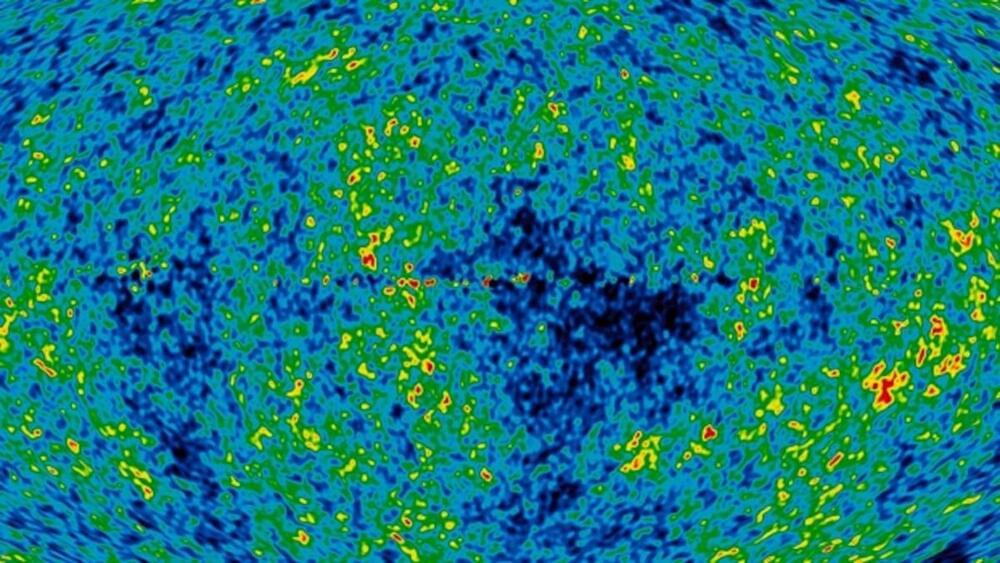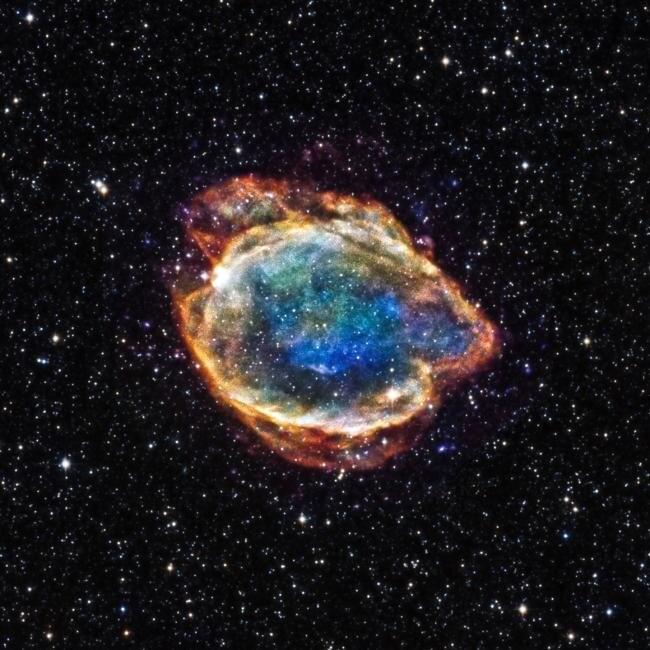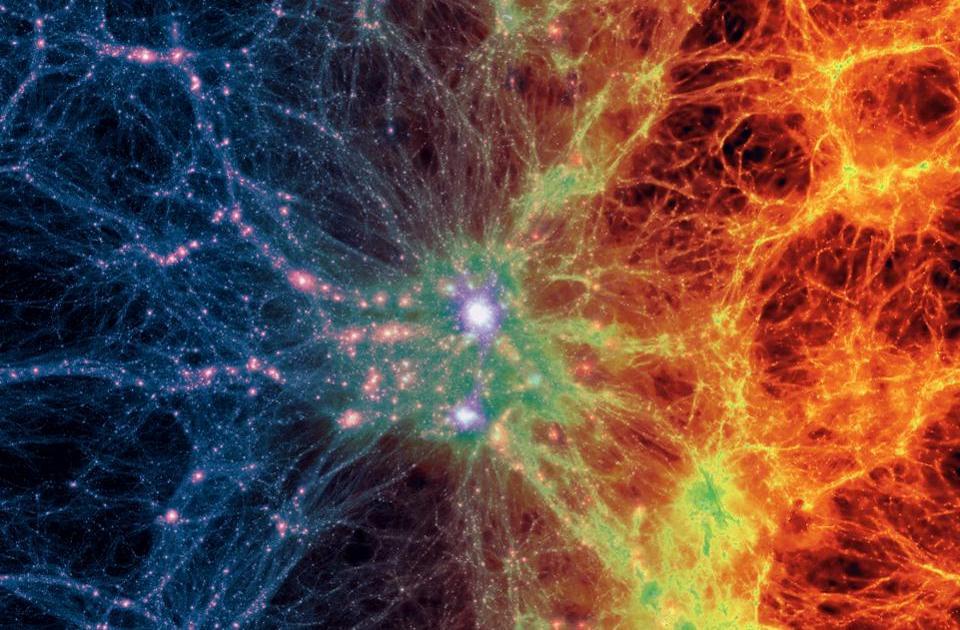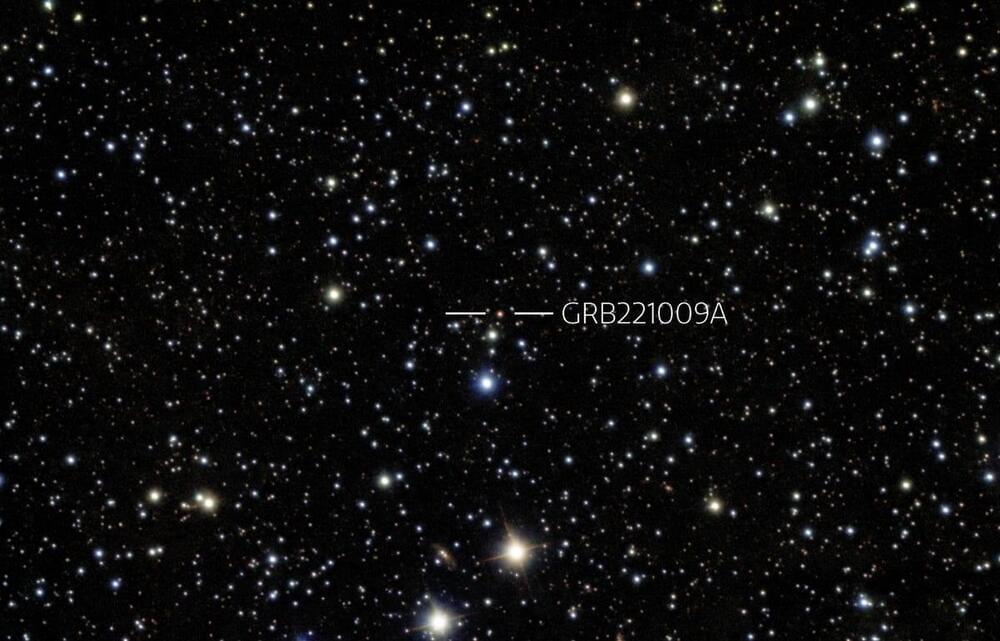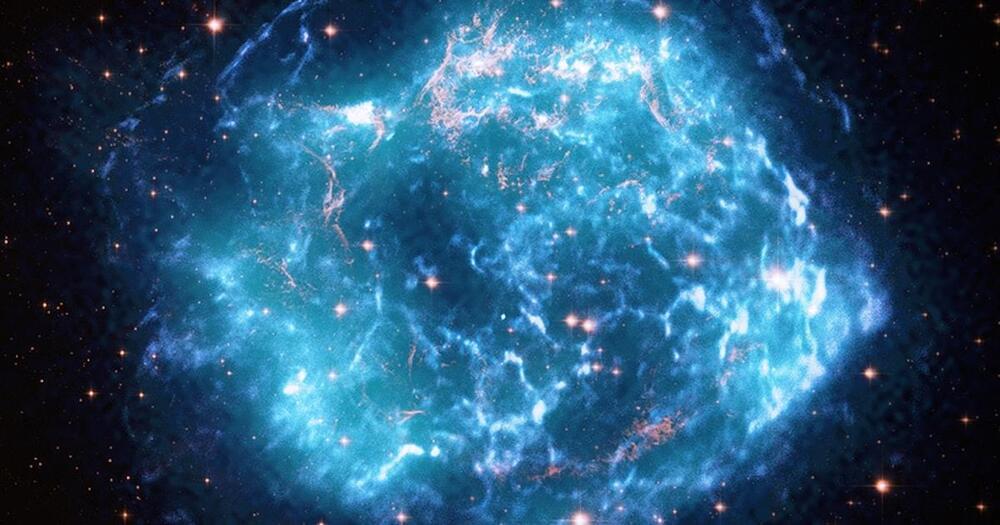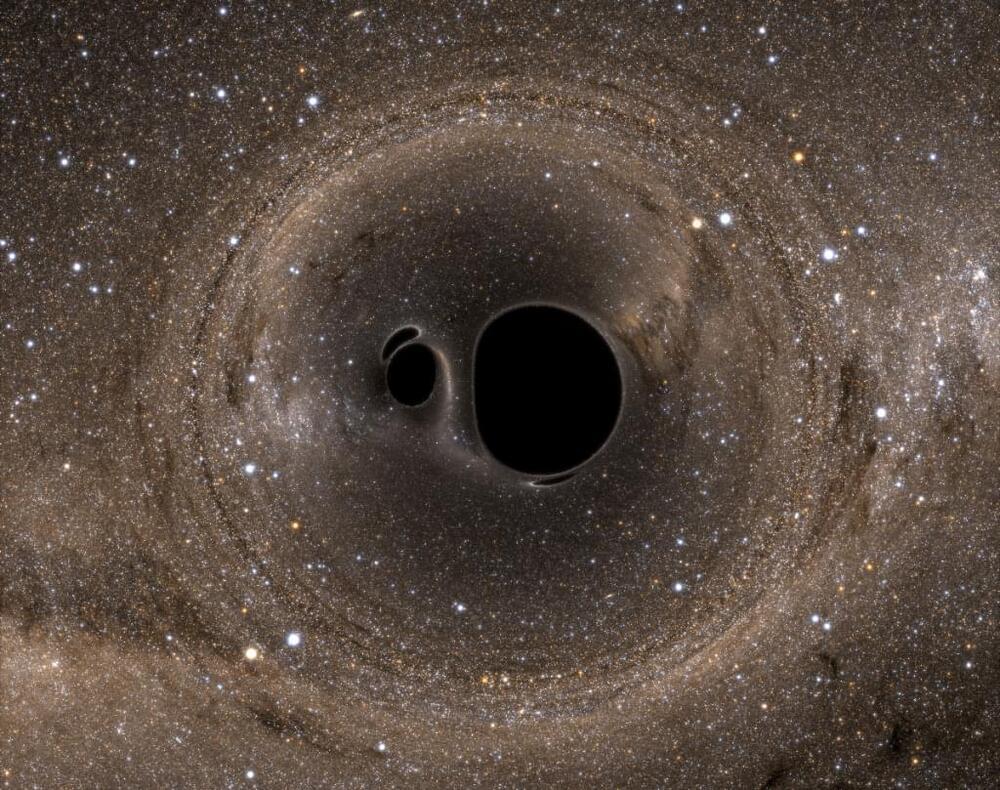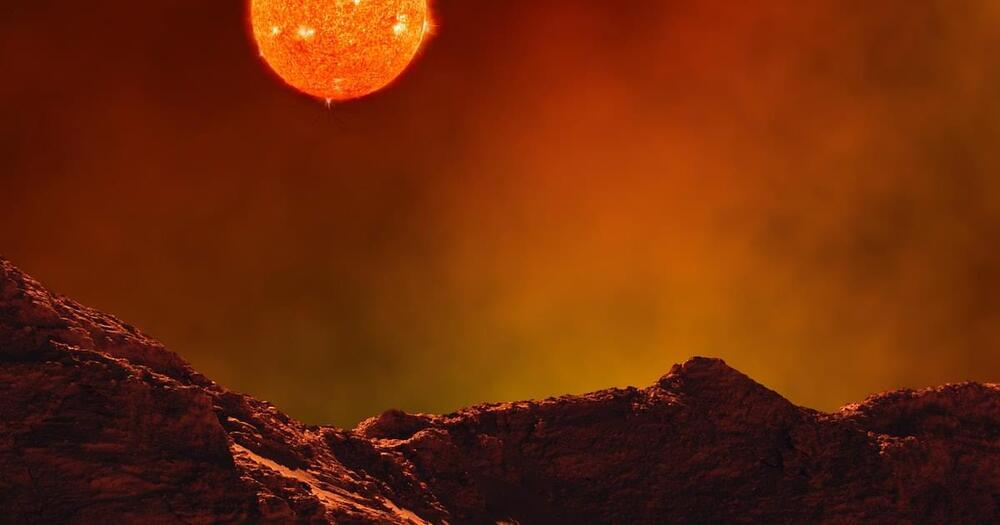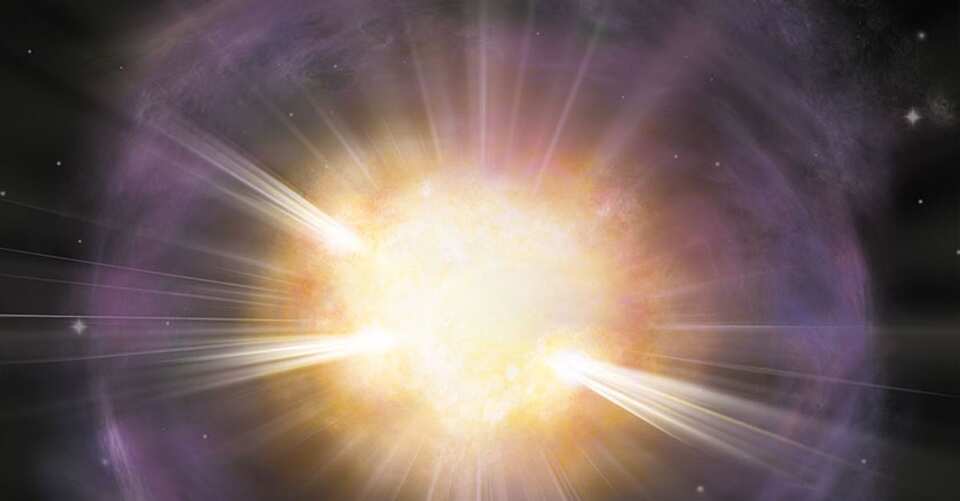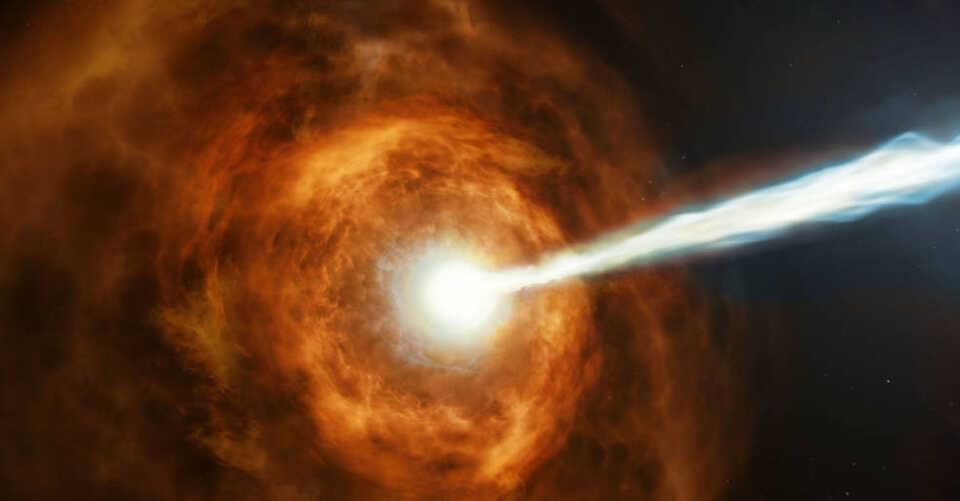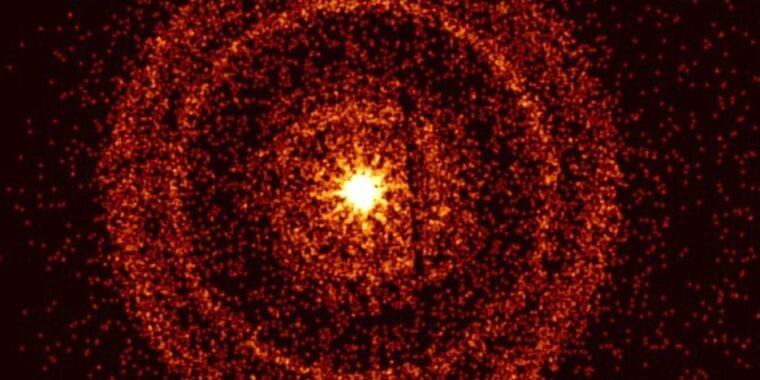
On the morning of October 9, multiple space-based detectors picked up a powerful gamma-ray burst (GRB) passing through our solar system, sending astronomers around the world scrambling to train their telescopes on that part of the sky to collect vital data on the event and its afterglow. Dubbed GRB 221009A, astronomers say the gamma-ray burst is the most powerful yet recorded and likely could be the “birth cry” of a new black hole. The event was promptly published in the Astronomer’s Telegram, and observations are still ongoing.
“In our research group, we’ve been referring to this burst as the ‘BOAT,’ or Brightest Of All Time, because when you look at the thousands of bursts gamma-ray telescopes have been detecting since the 1990s, this one stands apart,” said Jillian Rastinejad, a graduate student at Northwestern University. Rastinejad led one of two independent teams using the Gemini South telescope in Chile to study the event’s afterglow.
“This burst is much closer than typical GRBs, which is exciting because it allows us to detect many details that otherwise would be too faint to see,” said Roberta Pillera, a graduate student at the Polytechnic University of Bari, Italy, and member of the Fermi Large Area Telescope (LAT) Collaboration. “But it’s also among the most energetic and luminous bursts ever seen regardless of distance, making it doubly exciting.”
